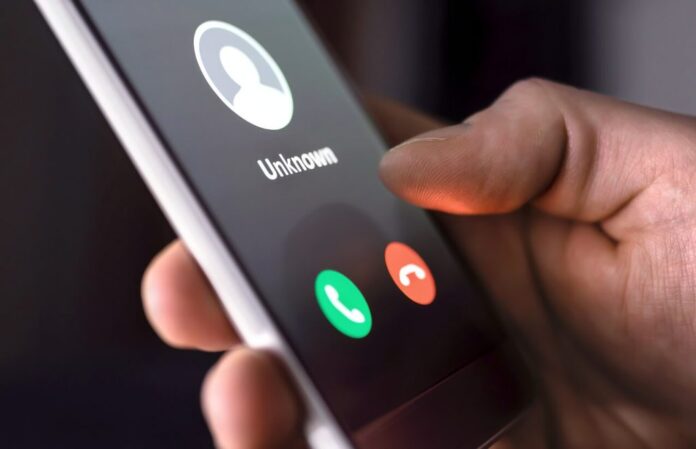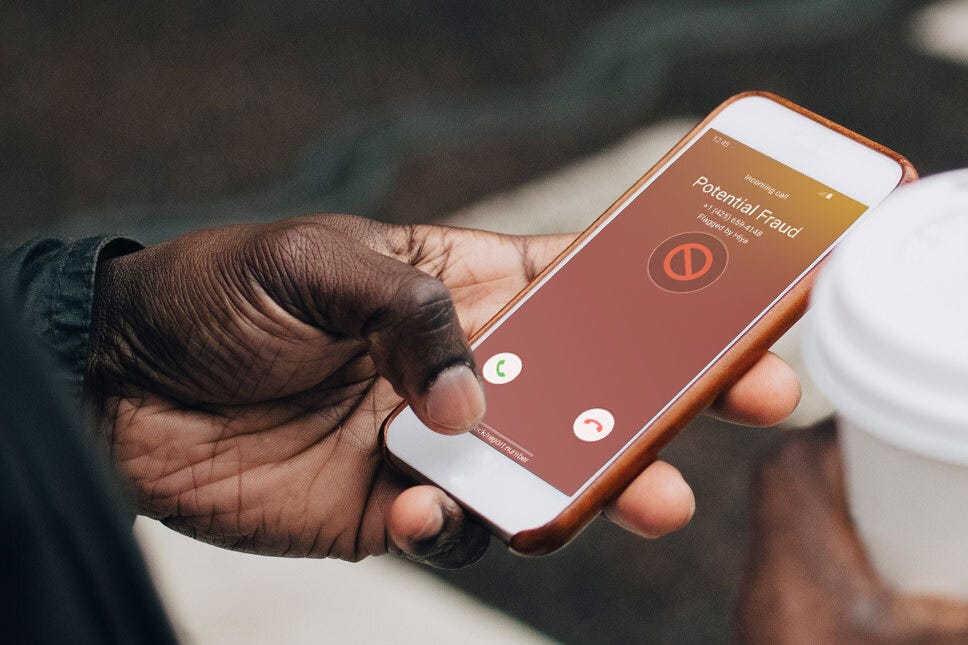
Frauds and scams are frequent even in our current age. In fact, you could say that they are even more frequent now. With an additional source of options for frauds to be spread through, these being digital devices, we should be more careful than ever. These scams could range from moderately annoying to decently serious. That’s why it’s very important to know how to avoid fraudulent calls.
Table of Contents
What types of fraudulent calls are there?

Every call meant to deceive and use us or our assets counts as a fraudulent call. The types of these calls can vary wildly but there are some pretty standard types to take into account.
Lottery and prize scams are popular types of fraudulent calls that aim to bring people into a game of chance and huge prizes that don’t exist. These scammers may aim to steal your personal data or even get you to pay an entry ticket to these made-up raffles.
Any type of official call can be turned into a scam. Whether they tie to your taxes or unpaid bills, these calls will always try to scare you into paying the supposed amount or suffer the consequences. Needless to say, you should always double-check who the person calling you is and contact the official channels for consultation.
Bank, insurance, health care, and any other exploitable source of payments can also suffer from fraudulent phone calls. These can be even more harrowing due to the importance of these services within our everyday life.
Any type of call that asks you for information about your online passwords or usernames should immediately be cut off. The corresponding sites and services have all the necessary data and won’t directly ask you for it. Even when interacting online, avoid sharing any of your account details.
Now that we’ve covered those tidbits let’s get further into the ways you can avoid fraudulent calls.
Fully confirm the identity of the person who called

When answering calls it’s paramount to immediately establish who’s calling us. Obviously, acquaintances and family members will already be on our contact list which makes them easy to discern. Even those who aren’t will immediately make their identity clear.
However, the situation where you are contacted by an unknown phone number may play out differently. When phone marketers and surveyors contact us they will aim to identify themselves immediately.
If not, we should immediately inquire them about their reason for contacting us. Even if that introduction happens, it’s plausible that this is just a surface-level excuse used by a person looking to pull a fraud. If you are uncertain about their legitimacy press them for more information. Sometimes, the best course of action is to google the entities they claim to be working for. This will quickly show whether they exist or not.
Utilize software to help keep other members safe

It’s important to make sure it isn’t only you who’s safe from these calls but your entire family too. This is where various software that can monitor phones comes into play.
These pieces of software are expertly made to offer as many tracking and monitoring capabilities as possible without compromising speed or functionality.
The software that has this purpose can be exceptionally useful to keep our kids away from scams. Unfortunately, due to younger kids lacking experience in dealing with fraud, it’s very easy to trick them. By installing appropriate software you could keep a step ahead of that and prevent fraud.
An example of one such software would be Chamspy. This piece of software allows you to track incoming and outgoing calls as well as a wide array of social media platforms that are being used on a smartphone.
It can be used to manage various details about the phone and monitor multiple risky areas. However, always make sure to get consent from the person whose phone you are installing this application on.
No matter whether it’s another adult family member or a kid, utilizing this sort of software without disclosing it with them could feel like a direct breach of their privacy that they didn’t accept.
Keeping them up to date is the healthiest way to conduct a safety measure such as this. As far as Chamspy itself goes, you can check out more about it on chamspy.net. Their site also has multiple reviews of people who’ve used the software and had a desirable outcome. This could help you note what type of utility they got out of it.
Don’t give personal information, especially if pressured

A lot of fraudulent situations will include somebody asking for your personal information. These bits of information could be anything from your personal data to bank account details. Keep in mind that no official source will immediately ask you for information like this. Those businesses and government institutions that contact you will already be privy of any details they need to engage with you further.
With frauds and scams, a frequent tactic is to pressure the person for personal information. This pressure needn’t be direct or forceful. Oftentimes it’s an act of manipulation where the person committing the fraud will start telling their victim about the side effects of stalling or not committing the act they asked for.
With this, they aim to disturb the person enough and make them give out the information under duress. Flustered targets could also act on instinct, especially if there’s a huge detriment being mentioned.
Another tactic is to entice the person with a reasonable but considerable prize. These prizes range from money to expensive items and will often have a vague promise of easy winnings tied to them. If a person conducting this conversation keeps insisting and manipulating you into giving them information make sure to hang up and block the number.
Don’t agree to odd payment requests

While frauds and scams are frequent they are also not desirable behavior. That’s why banks and a number of other services that work with money aim to remove users who may be engaging in frauds or scams. To circumvent that, scammers will often use alternative modes of money transfer.
Whenever some service, business, alleged official, or anybody else asks you to utilize an odd payment method your skepticism should be firmly employed. These services may be used as a way to avoid potential tracking of payments and actions taken by the scammer. Even if something does get uncovered, the scammer can just shut down the profile and get away with the scam.
A good practice even outside of standard cases of fraudulent calls is to always check the service being sold to you. Even in telemarketing situations, you can quickly glean information about a product without spending too much time. This can save you time and money that may have been spent on a subpar







